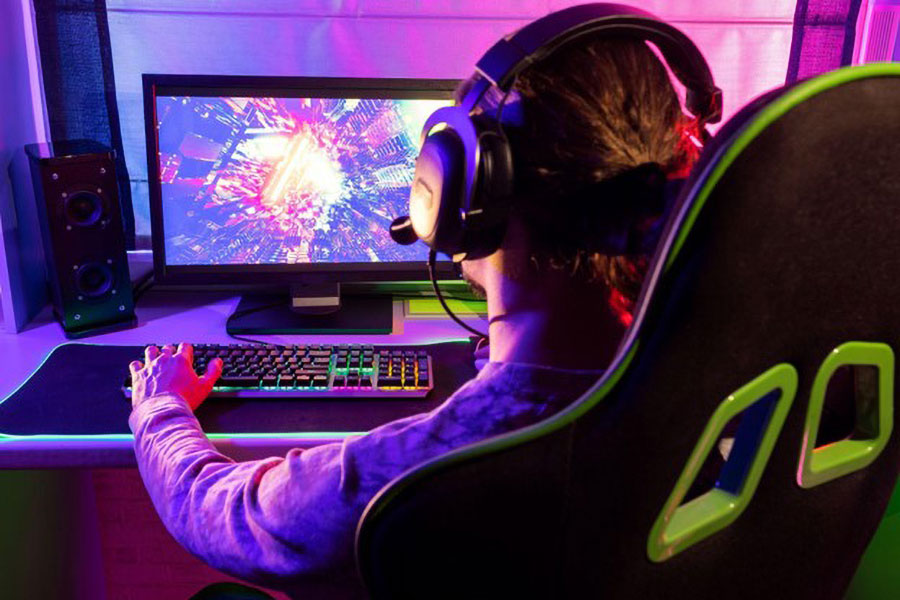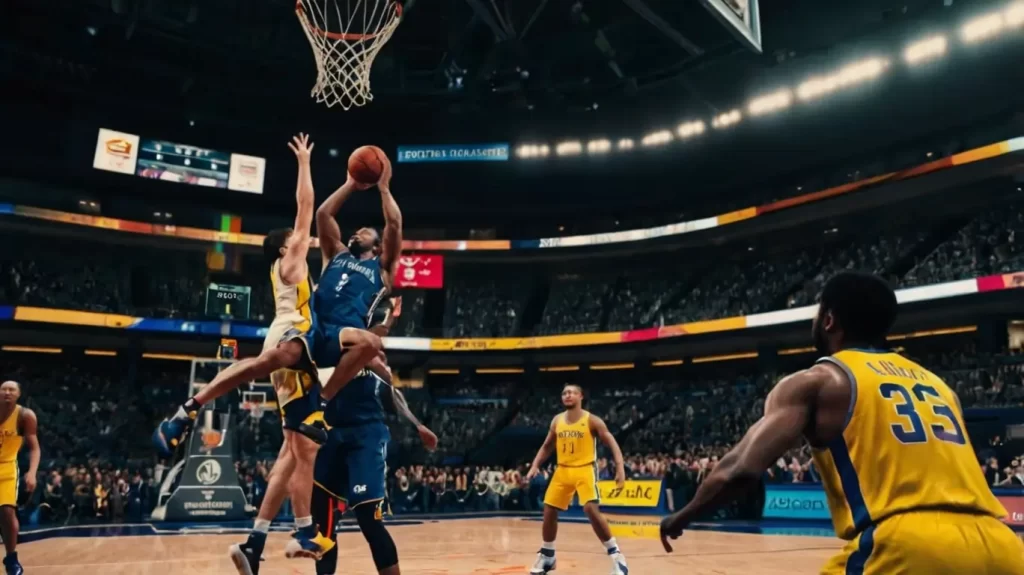The gaming world has changed dramatically, evolving from a quiet hobby into a massive industry filled with opportunities. So, what are the requirements to be a gamer today? Is it just about picking up a controller, or are there deeper qualifications that earn you the title of “gamer”? Let’s explore this vibrant landscape and break down the key requirements to be a gamer—from skills and experience to personality traits, education, and gear—that encapsulate what it means to be a gamer.
The Ultimate Guide to Becoming a Gamer: What Are the Requirements to Be a Gamer?
The Pillars of Experience
Experience is the foundation of any passionate endeavor, and gaming is no exception. Many gamers, myself included, have spent years honing reflexes, strategy, and hand-eye coordination. This experience can vary from casual weekend gaming to the intense environments of competitive esports.
1. Casual Gaming

For casual gamers like me, there’s much joy in the simple pleasure of mobile games or console titles. You don’t need previous experience; you only need a genuine interest in enjoying the vibrant worlds on your screen. Think about that friend from school who loved “Candy Crush” or your cousin who couldn’t stop talking about “Animal Crossing.” Their easy-going forays into gaming are just as legitimate and contribute to the vast tapestry of what being a gamer means.
2. Professional Gaming

Transitioning into professional gaming feels like stepping into a high-stakes arena. I remember the excitement of streaming on Twitch and competing in local tournaments; it’s a serious commitment. Professional gamers dedicate countless hours to mastering their chosen games. For these competitors, “practice makes perfect” is a daily refrain, and many start their journey at a young age.
Crucial Skill Sets
When discussing the requirements to be a gamer, it’s the skill sets that truly stand out. Here’s a closer look at some vital gaming skills:
1. Reflexes and Hand-Eye Coordination
Jump into fast-paced first-person shooters or real-time strategy games, and you’ll quickly realize that your reflexes can be your biggest asset. In those heart-racing moments of “Call of Duty,” I recall how split-second choices could mean either victory or defeat. Countless hours of practicing made my fingers move with precision—that’s what separates casual gamers from the elite.
2. Strategic Thinking and Problem-Solving

Read more: how to become a popular gamer
If you’ve ever played through the intricate scenarios of “Civilization” or “StarCraft,” you understand the thrill of plotting strategies like a master conductor leading an orchestra. It requires intense focus and quick thinking, navigating complex landscapes while devising intricate plans—like weaving a tapestry where every thread has its purpose.
3. Communication and Teamwork
Stepping into a MOBA like “League of Legends” or “Dota 2” feels akin to being part of a special operations team. Excelling requires teamwork; it’s one of the crucial requirements to be a gamer. I’ve been in battles where clear communication—through spoken commands and an understanding of each other’s plays—turned the tide. Witnessing a team function like a well-oiled machine, overcoming challenges not through skill alone but through flawless collaboration, is nothing short of magical.
4. Adaptability
The gaming industry changes rapidly—patches, updates, and new meta-shifts can upend everything. My initial success in a game like “Fortnite” didn’t guarantee lasting power when new strategies emerged. A true gamer’s ability to adapt is what sets them apart in this ever-evolving environment.
The Gamer Personality
Being a gamer isn’t only about technical know-how; it’s also about having certain personality traits.
1. Resilience and Patience

Each defeat, be it a streak of losses in matches or getting stuck on a tough boss, carries its own lessons. My journey has shown me that resilience—the capacity to bounce back, learn from failures, and keep going—is essential.
2. Passion and Dedication
Every gamer I’ve met shares an immense passion for their craft. This drive fuels their commitment, whether it’s climbing ranks, defeating tough bosses, or simply reveling in the gaming experience itself. Those late-night sessions and relentless pursuit of improvement often stem from this insatiable passion.
3. Curiosity
A gamer’s inquisitiveness drives them to explore every digital nook and cranny, uncovering secrets and mastering various game mechanics. This constant thirst for knowledge and desire to explore new genres expands our gaming horizons, like exploring an infinite universe of possibilities.
The Role of Education and Certifications
While formal education isn’t strictly necessary, it can certainly enhance one’s gaming journey and help meet the requirements to be a gamer.
1. Game Design and Development

Many aspiring game creators pursue computer science, game design, or software engineering degrees. Reflecting on our college experience, we realized that game theory, programming, and digital art courses offered invaluable insights into the complexities involved in game development.
2. Certifications and Online Courses
Websites like Coursera and Udacity, along with specialized gaming academies, provide courses tailored to gamers. Earning certifications in game development, ethical hacking (especially for game security), and professional streaming adds credibility and broadens one’s skill set.
3. Esports Coaching
For those looking to become coaches, certifications in sports psychology, team dynamics, and communication are incredibly beneficial. Understanding competitive gaming’s psychological and strategic aspects can significantly enhance a coach’s ability to mentor up-and-coming esports athletes.
The Tech and Gear
Your gear isn’t just for show; it can greatly affect your performance.
1. High-Performance Hardware

From a powerful gaming PC to a high-DPI mouse, a mechanical keyboard, and an ultra-responsive monitor—having the right tools can dramatically improve your gaming experience. I remember upgrading my equipment and immediately noticing the boost in responsiveness and immersion.
2. Ergonomics
Extended gaming sessions require ergonomic setups to ensure comfort and prevent strain. Investing in ergonomic chairs and desks can make a crucial difference, allowing for sustained comfort and efficiency over long periods. Hence, having the right ergonomic gear is essential to fulfilling the requirements to be a gamer.
Networking and Community
The gaming community plays a vital role in defining a gamer’s journey.
1. Online Forums and Social Media
Platforms like Reddit, Discord, and specialized gaming forums are gold mines for knowledge and community. I’ve gained countless tips, strategies, and friendships through engaging on these sites.
2. In-Game Friendships and Collaborations

Building relationships within games can lead to lasting friendships and collaborative experiences. From creating gaming clans to tackling challenges together, these connections add rich social dimensions to gaming.
3. Local and Global Tournaments
Taking part in local tournaments and global esports events not only increases exposure but also ignites competitive spirits. These experiences serve as milestones in a gamer’s journey, showcasing skills and enabling personal growth.
Summing Up
In summary, the question of what are the requirements to be a gamer is multifaceted and does not have a one-size-fits-all answer. Ranging from experience and skills to personality traits and education, the path to becoming a gamer involves a rich array of elements. Whether you’re a casual player or aiming for professional status, understanding these components will help you thrive in the ever-expanding world of gaming
References: +
1. Can gaming be a career?
Absolutely. Gaming has burgeoned into a multifaceted industry, offering careers ranging from esports athletes to game developers, streamers, and content creators. Professional gaming demands a blend of skills, dedication, and a bit of luck, but it can undoubtedly be a highly rewarding and lucrative career.
2. How important is joining a gaming community?
Joining a gaming community is profoundly beneficial. It provides a platform for learning, collaboration, and support. Interacting with the community often results in improved gaming skills, new friendships, and insights into the latest gaming trends and strategies.













